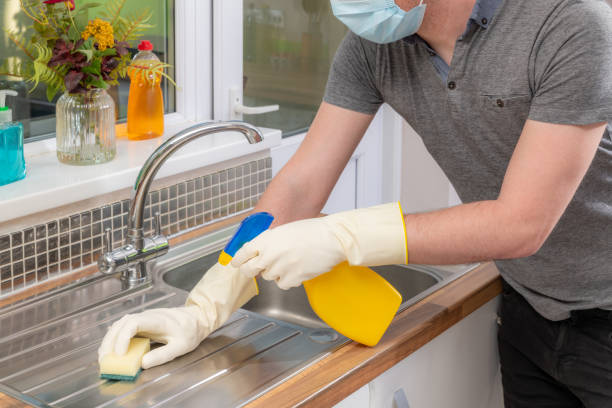During a lockdown, cleaning services may face challenges, but they are often considered essential, especially in maintaining hygiene and preventing the spread of infections. Here, we’ll explore various tips and ideas on how cleaners can operate effectively during a lockdown, ensuring the safety of both clients and staff.
Adhere to Government Guidelines
The first and foremost step is to stay updated on government guidelines and regulations regarding lockdown restrictions. Different regions may have varying rules, so it’s crucial to be aware of and comply with local laws. This includes understanding which businesses are deemed essential and how they are allowed to operate during a lockdown.
Implement Strict Safety Protocols
Cleaners should prioritize safety measures to protect themselves and their clients. This involves wearing personal protective equipment (PPE) such as masks, gloves, and possibly face shields. Additionally, frequent hand washing and the use of hand sanitizers should be encouraged. Maintaining social distancing, both between cleaners and clients, is crucial.
Virtual Consultations
Consider conducting virtual consultations whenever possible. Before providing services, cleaners can assess the client’s needs through video calls or photos. This minimizes in-person contact and allows for better planning of the cleaning process.
Provide Contactless Services
Implement contactless service options to reduce the risk of transmission. This can include leaving invoices electronically, accepting digital payments, and communicating with clients through messaging apps or emails rather than in-person interactions.
Flexible Scheduling
Offer flexible scheduling options to accommodate clients’ preferences and concerns. This could include evening or weekend appointments to minimize the number of people present in a space during the cleaning process.
Focus on High-Touch Areas
Given the circumstances, prioritize cleaning high-touch surfaces and areas. This includes doorknobs, light switches, countertops, and other frequently used characters. Paying extra attention to these areas can help reduce the risk of infection.
Use High-Quality Cleaning Products
Ensure that the cleaning products used are effective against viruses and bacteria. Consider using disinfectants that meet the standards recommended by health authorities. Communicate with clients about the products you use and reassure them of their safety.
Educate Clients
Provide information to clients about the steps you are taking to ensure their safety during the cleaning process. This can include sharing your safety protocols, the type of cleaning products you use, and any other measures in place to prevent the spread of infections.
Remote Supervision
If feasible, consider remote supervision or virtual check-ins during the cleaning process. This allows clients to monitor the work without being physically present, reducing the risk of exposure.
Employee Training
Properly train cleaning staff on safety protocols and the correct use of PPE. Ensure that they understand the importance of following guidelines to protect both themselves and their clients.
Maintain a Transparent Communication
Keep an open line of communication with clients. If there are any changes to scheduling or if someone on the cleaning team develops symptoms, inform clients immediately. Transparency builds trust, especially during uncertain times.
Evaluate and Adjust Services
Regularly assess the situation and be prepared to adjust your services based on the evolving circumstances. This may involve temporarily suspending certain services or enhancing cleaning protocols as needed.
Utilize Technology
Embrace Technology to streamline processes. This could include using scheduling apps, online payment systems, and other digital tools to minimize physical interactions and paperwork.
Market Your Safety Measures
Highlight your commitment to safety in your marketing materials. Emphasize the precautions you are taking to provide a clean and safe environment for your clients.
Plan for Contingencies
Have a contingency plan in place for situations where a client or staff member may test positive for an infectious disease. This plan should include steps for notifying affected parties, temporarily halting services, and deep cleaning affected areas.
In conclusion, while operating a cleaning service during a lockdown presents challenges, it is possible to adapt and continue providing essential services. Prioritizing safety, staying informed about regulations, and adopting innovative approaches will contribute to the success of cleaning businesses during these challenging times.


